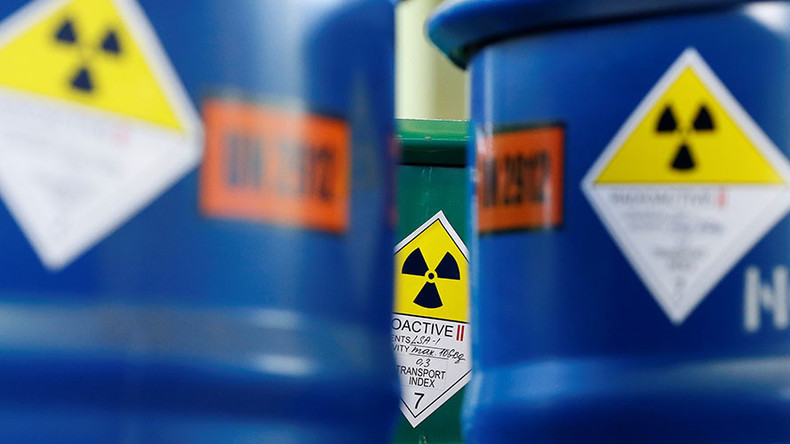Alwaght- Saudi Arabia seeks to extract uranium in a bid to attain “self-sufficiency” in the production of “nuclear fuel”, a Saudi official said on Monday.
Hashim bin Abdullah Yamani, head of the Saudi government agency tasked with nuclear plans made the announcement in an address to an international nuclear power conference in the United Arab Emirates capital.
which is our first step towards self-sufficiency in producing nuclear fuel,” Yamani said, adding, “We utilize the uranium ore that has been proven to be economically efficient.”
Saudi Arabia has approximately 60,000 tons of uranium ore, according to the latest figures provided by Maher al Odan, said the chief atomic energy officer of the King Abdullah City for Atomic and Renewable Energy (KACARE).
Riyadh plans to award a construction contract to foreign firms for its first two nuclear reactors by the end of 2018.
Industry sources say Riyadh is reaching out to potential vendors from the US, South Korea, China, France, Japan and Russia for the projects.
Elsewhere in his remarks, Yamani said Saudi Arabia would soon pass laws for its nuclear program and set up regulations for its nuclear agency by the third quarter of 2018.
“The IAEA (the International Atomic Energy Agency) also has been requested to conduct an integrated review of our nuclear infrastructure during the second quarter of 2018,” he added.
The official, however, did not elaborate on whether Riyadh also seeks to enrich and reprocess uranium which could eventually lay the groundwork for possible military uses of the material.
The majority of atomic reactors require uranium enriched to around 5 percent purity. The same technology in the enrichment process can also be used to enrich the heavy metal to higher, weapons-grade levels.
Saudi Arabia, a signatory to the Treaty on the Non-Proliferation of Nuclear Weapons (NPT), would become the second country in the Persian Gulf Arab region to go for nuclear energy after the UAE, which is to activate its first nuclear reactor next year.
Abu Dhabi has, however, committed not to enrich uranium itself and not to reprocess spent fuel.
The kingdom’s plan to join the nuclear club comes as Iran, which Riyadh views as its arch rival in the region, has over the past years made numerous achievements in the area of civilian nuclear technology.
In an effort to allay proliferation concerns, Tehran entered a landmark nuclear deal in 2015 with six world powers, namely the US, Russia, China, France, Britain and Germany.
The IAEA has repeatedly confirmed Iran’s compliance with the pact, under which Tehran has agreed to enrich uranium to 3.67 percent purity, around the normal level needed for commercial power-generation.
Saudi officials have made no secret of their hostile stance toward the nuclear deal which freed Iran from years-long sanctions, thus multiplying the country’s power for economic rivalry and opening up new channels for interaction with the world.
The Arab monarchy even threw its weight behind US President Donald Trump when he declined to certify that Iran was holding up to its end of the deal earlier in October, in sharp contrast to a long list of states which argued that the Iran deal was working.
Saudi Foreign Minister Adel al-Jubeir openly acknowledged that Riyadh was fully supportive of Trump’s aggressive new policy toward Iran.
Saudi Arabia is said to be considering building some 17.6 gigawatts of nuclear capacity by 2032, the equivalent of about 17 reactors.
The finances of Saudi Arabia have been hit by a downturn in oil prices that were above $100 a barrel in 2014, but sank below $40 two years later.
The plunge in global oil prices prompted Riyadh to rein in public spending and take economic measures such as diversification, privatization of massive state assets and tax increases.
According to the figures released on Sunday, the Saudi Arabian central bank’s foreign reserves continued falling in September and stood at their lowest since April 2011, as the government drew them down to cover a budget deficit.



























